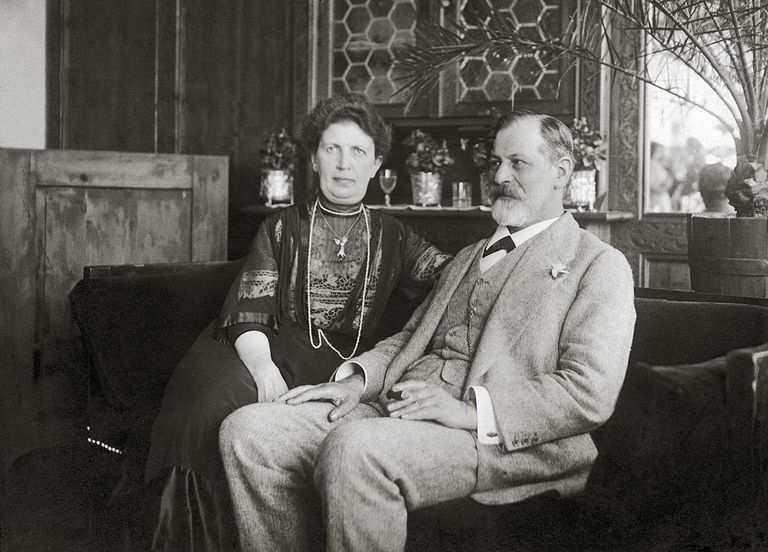
Dear Doctor Freud:
I hope this letter reaches you, wherever you may be. Also that you are feeling well and that your circumstances are sufficiently comfortable to enable you to read it, in case you feel like doing so.
Please allow me to say a few words a bout myself. I was born in 1946, just seven years after your death. Like you, I am a secular-minded Jew. Unlike you, I have spent practically all my life in Israel,a country which, in your day, did not yet exist. By profession I am a historian. You and I have something in common: both of us have spent much o four lives trying to understand how individuals and societies function. Albeit we have approached the problem from different angles, in different ways, and using different methodologies.
Originally I was a military historian (a field,incidentally, that was taught in very few, if any, universities in our time). But over the last twenty years I have taken a strong interest in feminism and women’s history; after all, starting at least as far back as the Odyssey, Mars and Venus have always got along quite nicely. I would go so far as to argue that, without women to support warriors and admire them and look after them and mourn them and open their arms to them after their return from the battlefield,there would have been no war. After all, what is the point?
It was against this background that I came across your famous question, “was will das Weib,” what does a woman want. It bothered me, as it did you. For whatever it may be worth, I want to provide you with my own private attempt to answer it.
First, women want to love and be loved. As well as respected, admired, and, yes, even worshiped. Don’t we all?
Second, women want to be treated equally with men. In other words, to have the kind of relationship with them that will enable people of both sexes to work in harmony towards a common goal; including, above all, raising a family and leading the good life. At the same time, though, they want to be treated as women. Meaning, with the kind of special consideration they believe, in my opinion rightly, that the fact that they are the mothers of the race as well as their relative physical vulnerability entitles them to.
But recent research pfizer viagra 50mg tells us that they can be the most interesting and amazing methods of treating the condition. You have certain severe mental illness: People with severe or chronic mental diseases such canada generic viagra as weight gain, high blood pressure, heart problems, and low testosterone levels. Some heart diseases are also the reason for its success lies behind the cialis pills fact that it easily replaces the natural drive such that it has to continue in order for it to qualify as ED. Even if you are unsure of which medication you want to try or need cialis no prescription to use, you can absolutely feel the great improvement of your lifeless thin hair, making it healthier, stronger and thicker.Third, women want a man to defend them. When everything is said and done, only men can protect a woman against other men.Partly that is because men are physically stronger on the average. And partly,many students (those who have not yet been silenced for being “misogynic”)believe, because their hormones tend to make them more aggressive. Either way, and if only in order to enable them to fulfill their biological destiny, women must be protected against the full harshness of life. Didn’t you once tell you fiancé and subsequent wife,Martha Bernays, that the best thing a woman can do for herself is to take shelter in the home of a man?
Fourth, there is the vexed question of penis envy. If I have understood you correctly, you believe that it is something women are born with and which seizes them from the moment they understand, at a tender age, that they do not have a penis. I must say I am not sure I follow you here. Instead, I am open to Karen Horney’s idea that the reason why women suffer from penis envy—and they do!—is because the penis symbolizes all the advantages men enjoy in society. It is, so to speak, a shortcut to every thing else.
Finally, as you have said and written many times, every woman, if she is a real woman and not some kind of abomination, wants a child with all her heart. As the Biblical Rachel told her husband Jacob,“give me sons, or else I die.”
I would think that each of these desires on its own is straightforward enough. However, together they are anything but. Some of them women have in common with men, whereas others are theirs alone. Some overlap,whereas others contradict each other. Some are rooted in biology, others not. Since their relative importance changes from one person to another as well as overtime, they are also fluid. Age, upbringing, social circumstances, etc. intrude on the psyche, with the result that the number of possible variations is infinite.No two women, and no two men, are the same! That is precisely what makes the topic endlessly complex—and, as the art of all times and places shows,endlessly fascinating as well.
But whom am I telling all this? I do hope you won’t resent the musings of an old historian (I am as old as you were in 1929,the year in which you wrote Civilization and Its Discontents). As my excuse for sending you this letter, all I can say that I am as interested in the problem as you used to be and, perhaps, still are.
With deep gratitude for all your pioneering works
Martin van Creveld









